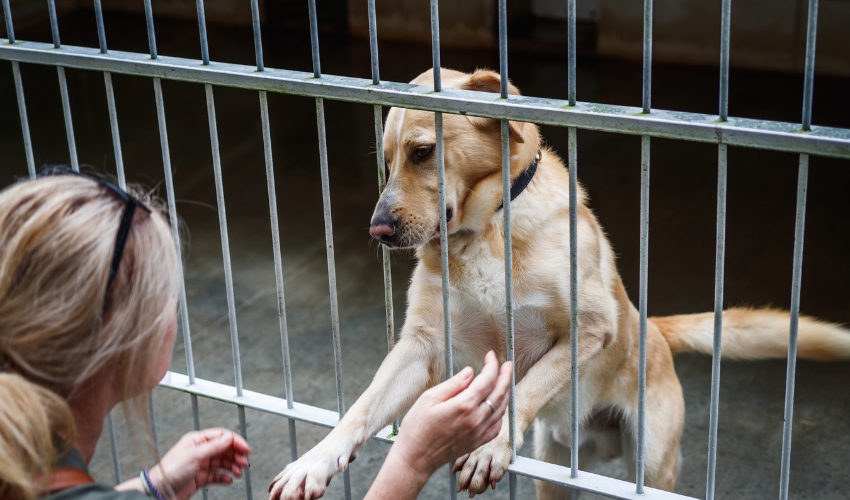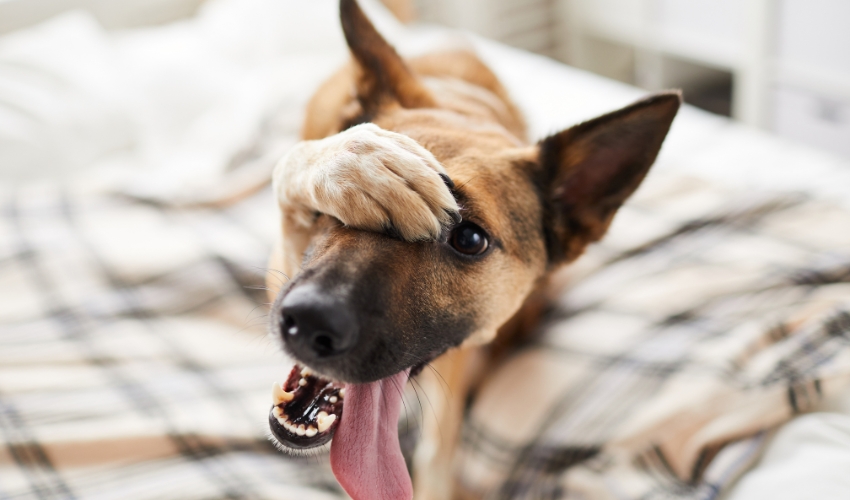Canine hypothyroidism is a common endocrine disorder that affects dogs of all breeds and ages. As a responsible pet owner, understanding the causes, symptoms, and management of hypothyroidism is crucial for ensuring the health and well-being of your furry companion. In this comprehensive guide, we’ll delve into the intricacies of diagnosing and managing canine hypothyroidism, offering practical insights and expert advice to empower pet owners in providing optimal care for their beloved dogs.
Understanding Canine Hypothyroidism:
Hypothyroidism is a prevalent endocrine disorder in dogs, characterized by insufficient production of thyroid hormone by the thyroid gland. This vital hormone regulates metabolism, affecting virtually every organ system in the body. When thyroid hormone levels drop below normal, metabolic processes slow down, leading to a myriad of clinical signs and symptoms. Several factors can contribute to the development of hypothyroidism in dogs, including autoimmune diseases such as lymphocytic thyroiditis, congenital abnormalities, thyroid gland atrophy, or adverse reactions to certain medications. While hypothyroidism can affect dogs of any breed or mix, certain breeds, including Golden Retrievers, Doberman Pinschers, Boxers, and Dachshunds, are predisposed to this condition.
Common Signs and Symptoms:
Recognizing the signs and symptoms of hypothyroidism is paramount for early detection and intervention. Dogs affected by hypothyroidism may exhibit a range of clinical manifestations, including:
Weight Gain: Despite a decrease in appetite and food intake, dogs with hypothyroidism often experience unexplained weight gain due to metabolic slowdown.
Lethargy and Fatigue: Hypothyroid dogs may appear lethargic, weak, or disinterested in physical activities, exhibiting decreased energy levels and overall stamina.
Skin and Coat Problems: Skin issues such as dryness, flakiness, hair loss, or recurrent skin infections are common in dogs with hypothyroidism. These dermatological changes often result in a dull, brittle coat lacking luster and sheen.
Cold Sensitivity: Dogs with hypothyroidism may become intolerant to cold temperatures, seeking warmth or shivering even in mild weather conditions. Cold extremities and a reluctance to venture outdoors in chilly weather are common indicators.
Behavioral Changes: Hypothyroidism can significantly impact a dog’s behavior, leading to moodiness, depression, or unexplained aggression. Dogs may exhibit changes in temperament, becoming irritable, withdrawn, or less responsive to external stimuli.
Gastrointestinal Upset: Dogs with hypothyroidism may experience gastrointestinal disturbances such as constipation, vomiting, or diarrhea. These digestive issues are often accompanied by decreased appetite or alterations in bowel habits, contributing to nutritional deficiencies and weight loss.
Diagnosis and Veterinary Evaluation:
Diagnosing hypothyroidism requires a comprehensive veterinary evaluation, beginning with a thorough physical examination and medical history review. Your veterinarian may recommend blood tests, including a serum thyroid hormone profile, to assess thyroid function accurately. This panel typically includes measurement of total thyroxine (T4) and thyroid-stimulating hormone (TSH) levels, providing valuable insights into thyroid gland activity. Additional diagnostic tests, such as thyroid ultrasound or thyroid scintigraphy, may be warranted to rule out other underlying conditions or anatomical abnormalities affecting the thyroid gland.
Management and Treatment Options:
Once diagnosed, the management of canine hypothyroidism revolves around lifelong thyroid hormone replacement therapy. Synthetic thyroid hormone supplements, such as levothyroxine, are administered orally to restore normal thyroid hormone levels in the body. These medications alleviate clinical signs and symptoms associated with hypothyroidism, improving overall well-being and quality of life for affected dogs. It’s crucial to adhere to your veterinarian’s dosage instructions and monitor your dog’s response to treatment through regular follow-up appointments and thyroid hormone level testing.
In addition to medication, holistic approaches and lifestyle modifications can complement traditional treatment methods and promote your dog’s overall health and vitality:
Nutritional Support: Feed your dog a balanced and nutritious diet tailored to their specific dietary needs and lifestyle. Opt for high-quality commercial dog foods or consider homemade or raw diets rich in essential nutrients, vitamins, and antioxidants to support thyroid function and immune health.
Regular Exercise: Encourage regular physical activity and exercise to help maintain a healthy weight, stimulate metabolism, and promote cardiovascular health. Daily walks, playtime, and interactive games can help keep your dog mentally and physically stimulated while fostering a strong bond between you and your pet.
Environmental Enrichment: Provide a stimulating and enriching environment for your dog, including interactive toys, puzzle feeders, and opportunities for mental stimulation and socialization. Engage in training sessions, obedience classes, or canine sports to keep your dog mentally engaged and emotionally fulfilled.
Stress Management: Minimize stressors and environmental triggers that may exacerbate hypothyroidism symptoms or compromise your dog’s well-being. Create a calm and peaceful living environment, establish predictable routines, and offer plenty of opportunities for relaxation and downtime.
Regular Veterinary Monitoring: Schedule routine veterinary check-ups and thyroid function tests to monitor your dog’s health status and response to treatment. Your veterinarian can adjust medication dosages as needed and provide guidance on managing any concurrent medical conditions or complications associated with hypothyroidism.
By adopting a holistic approach to management and incorporating lifestyle modifications into your dog’s routine, you can optimize their overall health and well-being while effectively managing canine hypothyroidism. With dedication, vigilance, and compassionate care, pet owners can ensure that their furry companions lead happy, healthy, and fulfilling lives despite this chronic endocrine disorder.
Coping with canine hypothyroidism requires dedication, vigilance, and a proactive approach to veterinary care and management. By understanding the causes, symptoms, and treatment options for hypothyroidism, pet owners can provide their furry companions with the support and care they need to thrive. From regular medication administration and veterinary monitoring to holistic lifestyle modifications and nutritional support, there are many ways to improve the overall health and quality of life for dogs affected by hypothyroidism. With compassionate care and informed decision-making, pet owners can ensure that their dogs lead happy, healthy, and fulfilling lives despite this chronic endocrine disorder.












